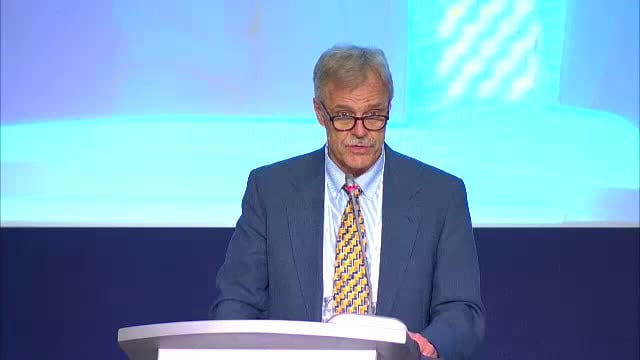Meet our TNH members: Daniel Maxwell
“I realized after a few years that I was a humanitarian whether that was my intent or not.”
Every member of The New Humanitarian has a story to tell – and we'd like to help you get to know some of our members a little better, so that can get an idea of who you'll be in the company of in our community if you too decide to join us.
Meet Daniel Maxwell, a professor at Tufts University in Boston who worked in the field for 25 years, mostly in East Africa. If your work has brought you anywhere near food security, you've likely already had the pleasure of meeting him. He was kind enough to answer some questions for us, both looking back and looking ahead at future humanitarians.
How did you get started in the humanitarian sector?

It was an accident. I had worked in East and West Africa for about 15 years, but thought of myself as a “development person” when I was hired by CARE International as their regional food security and livelihoods advisor in 1998. Over the following eight years, I spent much of my time working on access to food and protecting livelihoods in big emergencies (Sudan/southern Sudan civil war and the Darfur war; two Ethiopia drought crises; the Ethio-Eritrean war; drought and conflict in Somalia; the wars in Northern Uganda, DRC, and Burundi; and the occasional drought in Kenya). I realized after a few years that I was a humanitarian whether that was my intent or not.
You worked in the field 25 years; we're turning 25 this year! What have you seen change? Just the haircuts?

Last year Peter Hailey and I were part of an IPC [Integrated Food Security Phase Classification] analysis meeting in South Sudan, with a lot of staff from the NGO REACH. All the REACH guys had their hair in man-buns – made us realize how old we were (living under the pandemic lockdown for the past two and a half months has helped with the hair, but not enough for a bun just yet!).
Seriously, I suppose the biggest changes have been the shift to cash programming and the introduction of both RUTFs [ready-to-use therapeutic food – think Plumpy’Nut] and community managed approaches to malnutrition; much improved information systems and more evidence-based decision making; much more of both the internationalization and the localization of humanitarian action and humanitarian teams, etc.; but also the rapid growth in needs, budgets, staffing levels, and complexity, remote management. And unfortunately much remains the same or has gotten more difficult: access constraints, security concerns, accountability shortcomings, and the sense that although we are constantly making improvements, the problems change faster than we can keep up with sometimes.
As a professor, you meet (and shape) some of the next generation of humanitarians. What's in store for us?
Well, I have to say, as a professor, I am constantly amazed by the brilliant young people from many different countries and backgrounds coming into the field. My generation was mostly self-taught when it came to our knowledge of humanitarian action. I hope with better preparation this generation of humanitarian leaders will be able to avoid some of the mistakes that we made.
...
Support our work and join our community
As we mark our 25th anniversary, we have launched a voluntary membership programme. Join Daniel and more than 300 members who have already become members of The New Humanitarian.